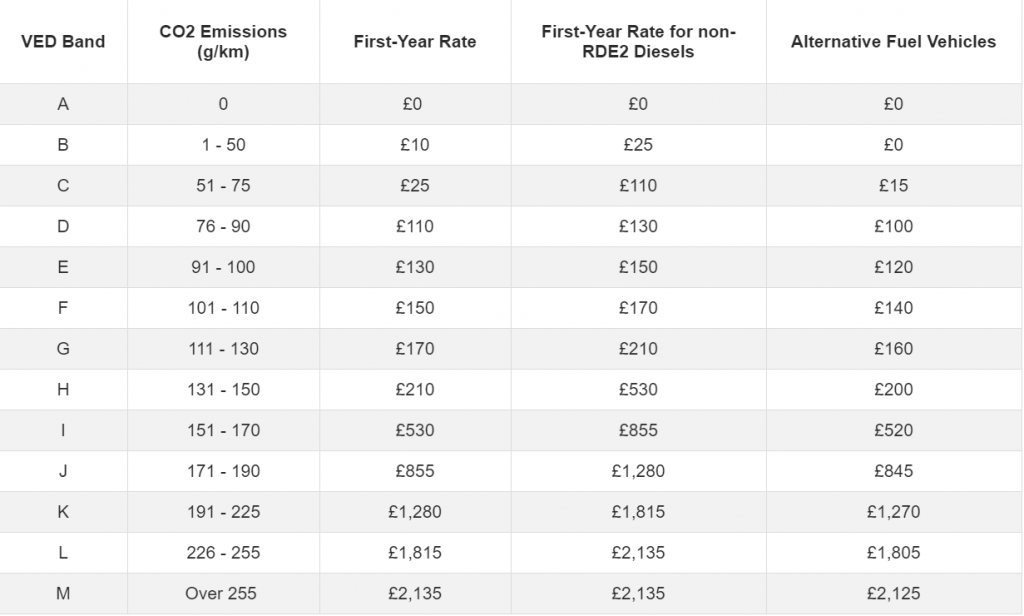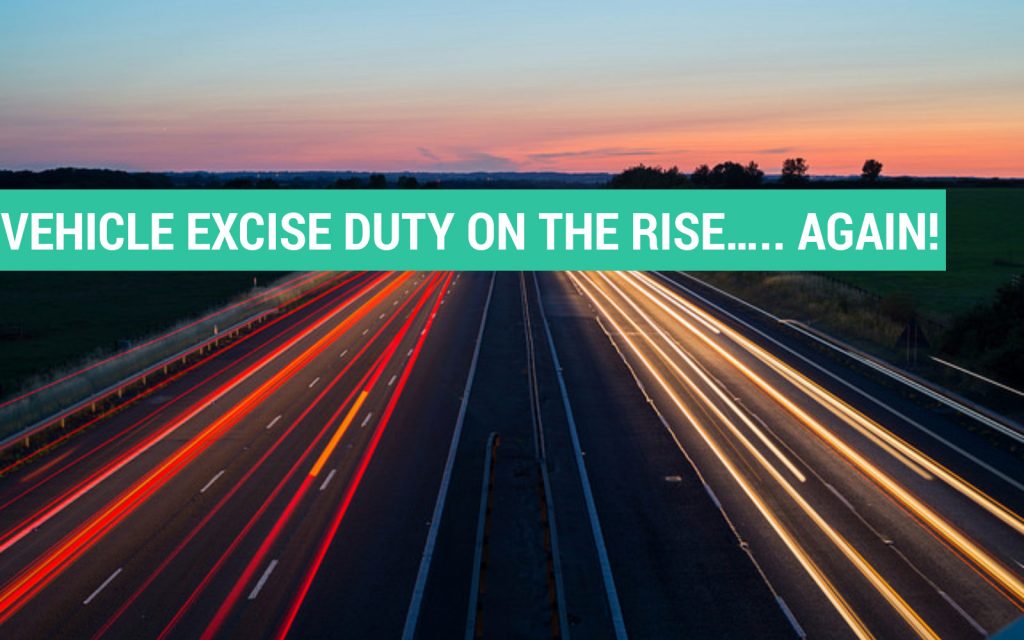Vehicle Excise Duty on The Rise….. AGAIN!
Vehicle Excise Duty (VED), most commonly known as Road Tax or even Car Tax, will be on the rise again. Why? Again, we touch on ‘Global Warming’ and how the government endeavour to change our driving habits. These increases are based off the latest manufactures CO2 Emissions, for all cars and commercial vans, registered on and after the 1st April 2020.
How is Vehicle Excise Duty Calculated?
If you’re a driver in the UK, you will have to pay for Vehicle Excise Duty. When you lease a vehicle, the finance company is the registered owner, however, they have still taken the Vehicle Excise Duty into account when calculating a residual value on the vehicle. Thus meaning, you’re still technically paying for it! The amount that is paid depends on factors such as the vehicles Co2 Emissions, that are omitted at the time it’s first registered, additional factors included but not limited to; Engine Size and the Fuel Type.
Based on this, you can see why the Electric Vehicle ‘EV’ revolution is starting to take off. Electric vehicle owners are exempt from paying Vehicle Excise Duty and still benefit from very powerful, fun to drive vehicles. On the other scale, Diesel owners usually pay the highest rate of Vehicle Excise Duty compared to Petrol owners.
What date is Vehicle Excise Duty set to increase?
The changes to Vehicle Excise Duty is to be introduced on all new vehicles registered from the 1st April 2020.
I’m a Company Car Driver. Will these changes impact me?
There will be a similar effect for Benefit in Kind (BIK) rates which will affect the amount of Company Car Tax you pay. These come into fruition at the slightly later date of April 6th 2020. Other changes to company car tax will be happening though so be sure to keep your eyes peeled for further updates.
Why is Vehicle Excise Duty changing?
Since 1990, the official ‘test’ that was carried out on new vehicles to determine it’s Co2 emissions was called New European Driving Cycle test (NEDC). This way of testing became outdated due to evolution in both technology and driving conditions. Therefore, from September 2017 NEDC was replaced with Worldwide Harmonised Light Vehicle Test Procedure (WLTP). This new way of testing means vehicles are tested in more ‘realistic’ conditions and not just carried out in a laboratory. This has meant a more accurate interpretation of the vehicle emissions and fuel economy have been revealed.
In simple terms, what does this mean for me, the driver?
Using the table below, you can calculate which band your vehicle would fall within, should it be registered after the 1st April 2020.

I have signed an order for a vehicle but it can’t be delivered until after April. Will that affect my contract?
Any changes to VED is a change from the UK Government. Any shortfall in calculations made by the manufacture, leasing broker or dealer would be passed onto to the customer. Neither parties can be held responsible for changes made to Vehicle Excise, Import Tax or VAT which can change at any point throughout the contract.
What can I do to beat the increase?
Securing a stock and registered vehicle prior to April 1st, could end up saving you hundreds of pounds. Money better in your back pocket than the governments.
Applied Leasing have a huge array of stock vehicles available for delivery before April 1st which you can take advantage of now. If you’re an existing customer whose contract isn’t due to expire until after April, be sure to contact our Team to discuss the possibility of terminating your existing contract early to beat the VED increase.
To go to our blog homepage click here
You can see all of our latest offers by clicking here
Alternatively, if you would like to find out more information you can visit the Gov site by clicking here



